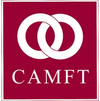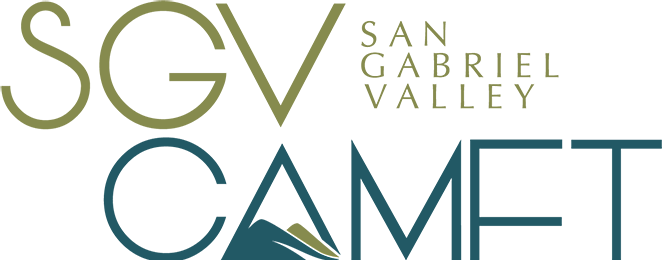|
If I’ve learned anything from attending networking events and hosting a monthly practice development lunch, it’s what licensed and pre-licensed therapists and related professionals want. Top of the list are: full practice or good job; work they love; ideal clients; enough money to support themselves, family (this doesn’t have to mean having a partner or children), and practice without struggling too much; a reasonable number of hours along with time away from work for personal and family life, vacation, networking and professional development, as well as for other individual or professional pursuits Therapists are willing to work hard for all the above—starting with graduate school and continuing through gaining hours for licensure, and post-licensure or certification, then through the accruing of years working, and the maturing of their career. How can, and do, professionals attain these highly-desired benchmarks while still serving clients, the profession, and the community? The good news is that it can be done with any type of practice that suits you best: cash pay, insurance, sliding scale, part-time, online, coaching; day, night, weekday or weekend; rent your own office, share, sublet full day or half day or hourly, etc. It’s your choice. In fact, having the successful practice you want depends largely on the practice being suited to you and the clients you work with. So how do you grow and fill a practice? Local networking. Consistent, effective, and ongoing, local networking is the best way to get known in your community and the fastest way to grow a practice and keep it filled. What is local networking and how does it work? Local networking is one of the most natural ways of interacting with people—and most professionals find this a comfortable way to get known in their community. Local networking means raising awareness about your services and getting the word out about how you help people and doing this by regularly connecting with everyone you know and keeping them up-to-date with what you’re doing in your practice or career and maybe even inviting them to check out your website, social media, blog, article or podcast. Local networking means letting those in your community know what you do and how you help people—relatives, friends, neighbors, social and community contacts, colleagues, those at church or temple, people you worked with at previously or were in graduate school with or a placement—don’t forget professors and supervisors. Each one of these people is a potential referral source for your practice. Find a way to keep in contact with them and to keep them current on you and your practice. Building your contact list, e-mail list, referral sources, and resource list is a long-term project. Start today! Getting the word out about what you do and the services you offer to the community also involves meeting new people and making new friends as you increase your practice’svisibility and grow your network. Who you know, those who know you, and those who refer to you are valuable resources for filling your practice with clients who need your services and will pay your fees. Think about it this way, when people know about your practice, and are familiar with your services, they can find you or refer to you when a therapist with your skills and abilities is needed. This type of networking is viewed as a community service, so make sure your community knows how you can be of service to them. The more people, businesses, organizations, and professionals in your community who know about the work you do the faster your caseload will fill. Local networking can take a variety of forms, in person, online, digital or print advertising, talks, blogs, podcasts, YouTube videos, and any type of social media or online forum. It’s up to you to decide what works best for you, your practice, client market, available time, and budget. Take your pick. You get to choose. Try things out, then see what works best for you. Local networking also means becoming familiar with your community and how your potential clients move through it via churches, schools, sports programs and teams, athletic and country clubs, theater arts, colleges, yoga centers, hospitals, libraries, parks and recreation, employee assistance programs, and many others. Understanding the needs of potential therapy clients in your area and how those needs are being or not being met makes practice building easier. Since therapists are an important part of every community, it’s important that we be visible so that our clients can find us when they need our services. The therapists I know who have a full enough practice with a consistent influx of clients are those who are known in, and know, their communities and keep up regular contact. Local networking also includes getting known in your professional community. Joining and attending your professional organization is a great way to get connected with other professionals in your area and to develop and maintain relationships and friendships as well as referral sources for your network. Through monthly networking events, workshops, member events, newsletter articles, classified advertising, and e-blasts, special interest groups, support groups, and special events, Professional organizations provide many networking opportunities for therapists and related professionals to get known in the community and develop themselves and their relationships. As you can see, filling your practice with the clients you’re meant to work with requires that you find a way to connect with your community and let them know, on a regular basis, that your practice exists, what services you offer—and how people can go about contacting you when they desire your services. This success formula for attracting new clients, filling your schedule, earning enough income, and having vacations, consists of raising awareness about your private practice in your community. So, go ahead, announce your presence to the world and raise community awareness about your private practice. Be sure to keep me posted about your progress. I look forward to hearing about your success — and your vacation!
0 Comments
Leave a Reply. |
Lynne Azpeitia, LMFTFor 10+ years Lynne Azpeitia has helped therapists to live richer and happier lives through her workshops, private practice and career coaching, and her practice consultation groups which train, support, and coach licensed therapists, interns & students how to create and maintain a successful, thriving clinical practice and a profitable career Archives
November 2023
Categories
All
|
Lynne Azpeitia, LMFT (310) 828-7121
AAMFT Approved Supervisor
Coaching Clinicians for Practice & Career Success
Online and In-Person
3025 W. Olympic Blvd
Santa Monica, CA 90404
&
Phone, FaceTime, What's App & Video Sessions Available for Coaching & Psychotherapy
Coaching, Workshops, Training & Consultation
www.lapracticedevelopment.com
Psychotherapy
Online and In-Person
&
Business, Personal, & Creative Coaching
Specializing in Coaching & Psychotherapy for
GIFTED, TALENTED & CREATIVE ADULTS
www.gifted-adults.com
© 2017-2024 Lynne Azpeitia All Rights Reserved






